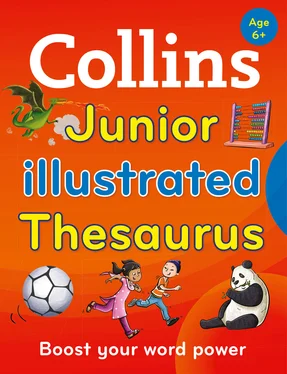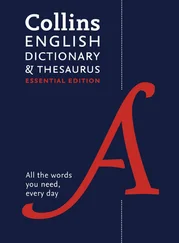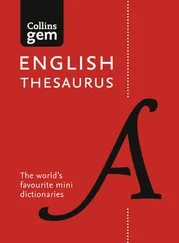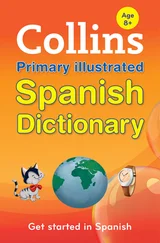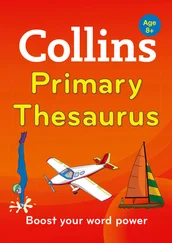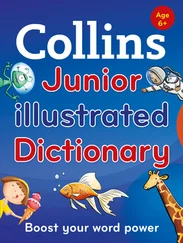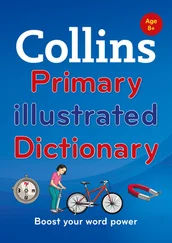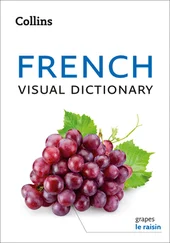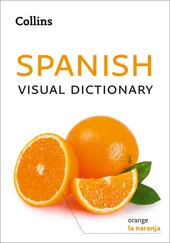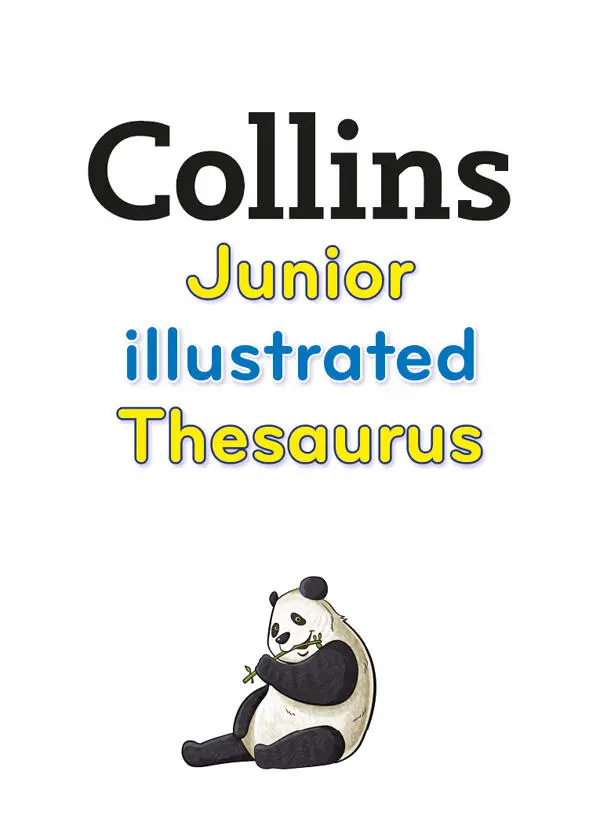
Contents
Cover
Title Page
Using this thesaurus
Aa
Bb
Cc
Dd
Ee
Ff
Gg
Hh
Ii
Jj
Kk
Ll
Mm
Nn
Oo
Pp
Qq
Rr
Ss
Tt
Uu
Vv
Ww
Xx
Yy
Zz
Word list pages
Amphibians
Animals
Birds
Body
Books
Buildings
Cars
Clean
Cold
Colours
Cooking
Crimes
Criminals
Dance
Drinks
Flowers
Fruit
Groups
Insects
Jobs
Magic
Mammals
Music
Pictures
Poetry
Reptiles
Shapes
Sounds
Space
Sports
Stories
Time
Trees
Vegetables
Water
Weather
Young animals
Index
Picture Credits
Copyright
About the Publisher
Using this thesaurus
A thesaurus helps you choose exactly the right word to make your writing more interesting. In your writing, do you find you use words like good, bad and nice too often? A thesaurus will help you find other words with the same meaning.
How to find a word
If you want to find a different way of saying a word, think of its first letter. Once you know this, there is more than one way to find your word in the thesaurus:
• You can use the Indexat the back of the ebook which lists all of the thesaurus words in alphabetical order. Scroll through the Index until you find the letter your word begins with, then look down the words until you find the one you are looking for. You can then follow the link to the entry in the thesaurus.
• You can use the Contentspage at the front of the book, which has a link to every letter in the thesaurus. Follow the link to the letter your word begins with, then look through the entries in this letter until you find the word you are looking for. The entries are in alphabetical order.
Once you have found your word in the thesaurus, you can choose the synonym that suits your writing. A synonym is a word or phrase that has a similar meaning to the headword. Read the example sentences to understand how each synonym can be used.
Choosing the right synonym
1. The headword is the word that you want to find a synonym for.
2. Some headwords also have a number in brackets. This tells you that this headword can have different meanings.
3. Next you will see the part of speech. This tells you what type of word the headword is, such as a noun, verb, adjective, adverb or pronoun. If the word you want to find is a verb, make sure the headword you look at is also a verb.
4. Underneath the headword, you will find the definition. The definition tells you what the headword means.
5. The synonyms are listed below the definition of each headword. Synonyms have similar meanings to the headword.
6. Every synonym in the Collins Junior Thesaurus has an example sentence. This shows you how the word might be used in speech or writing.
7. Some headwords and synonyms have an illustration or photo to help you read the word and understand its meaning.
Other features of this thesaurus
This arrow ➔ points to a booster. Boosters are lively words and phrases that can be used to replace a headword. Boosters are usually words that are used in speech as slang, in proverbs and in mottos. For example:
noisy ADJECTIVE
Someone or something noisy makes loud or unpleasant sounds.
boisterous
Dad complained the party was getting far too boisterous.
deafening
Suddenly there was a deafening clap of thunder.
loud
The boys’ game was much too loud.
piercing
She was a nice girl, but they couldn’t stand her piercing laugh.
➔ ear-splitting
An antonym is a word that means the opposite of another. When a headword has an antonym, the antonym is shown at the end of the entry.
hot (2) ADJECTIVE
You say food is hot if it has a strong spicy taste.
peppery
The meal was a bit too peppery for me.
spicy
Dad likes his curries really spicy.
ANTONYM: mild
Word list entries
There are special themed entries throughout this thesaurus to support your writing.
At these entries you will find lists of things, such as parts of the body, colours and different types of animal. You might also find labelled illustrations to help you understand the words in the list. The word list pages are listed on the Contentspage.
Online resources
Explore further at www.collins.co.uk/homeworkhelpfor games, activities and extra support for parents and children.
Aa
accident (1) NOUN
An accident is something nasty that happens by chance.
calamity
The flooding river caused a calamity and the house was wrecked.
catastrophe
That plane crash was a catastrophe.
collision
Mark damaged his bike in a collision with the gatepost.
crash
There was a bad crash on the motorway.
disaster
Tom’s walk ended with a disaster when he fell in the canal.
mishap
“Just a mishap,” said Dad, after his keys fell down the drain.
accident (2) NOUN
If something happens by accident, it was not planned.
chance
The friends met by chance at the disco.
coincidence
Ben and Rosie got the same answers by coincidence.
afraid ADJECTIVE
Someone who is afraid thinks that something nasty might happen.
anxious
Mole felt anxious in the wild wood.
nervous
“You don’t need to be nervous,” said the dentist. “This won’t hurt a bit.”
panic-stricken
They were panic-stricken when they heard the ice crack.
petrified
Emma was petrified during her ride on the big dipper.
scared
Goldilocks was scared when the three bears found her.
worried
Our cat was worried when the pet-shop owner picked up her kittens.
➔ numb with fear; scared to death
amphibian NOUN
An amphibian is an animal that can live on land and in water.
TYPES OF AMPHIBIANS:
anger NOUN
Anger is the strong feeling you have about something that is unfair.
fury
My little brother stamped his foot in fury when I wouldn’t play with him.
outrage
There was outrage among farmers when the plans were announced.
rage
Nobody dared annoy the ogre, because his rage was terrible to see.
angry ADJECTIVE
If you feel angry, you are very cross.
annoyed
Alice was annoyed with the Mad Hatter and the March Hare.
cross
Steven was cross when his sister finished his jigsaw.
enraged
Michael was enraged when thieves stole his new bike.
furious
His sister was furious about the broken window.
infuriated
Grandpa was infuriated because squirrels had dug up his flower bulbs.
mad
I made my best friend mad by shouting at her.
wild
Sarah was really wild when her little brother scribbled on her work.
➔ climbing the walls; fuming; going ballistic; livid
ANTONYM: pleased
animal NOUN
Animals are living things that are not plants. Humans, mammals, birds, fish, reptiles and insects are all animals.
beast
Fabulous beasts roamed wild in the enchanted forest.
creature
Mice are timid creatures.
KINDS OF ANIMALS:
amphibian
bird
fish
insect
mammal
reptile
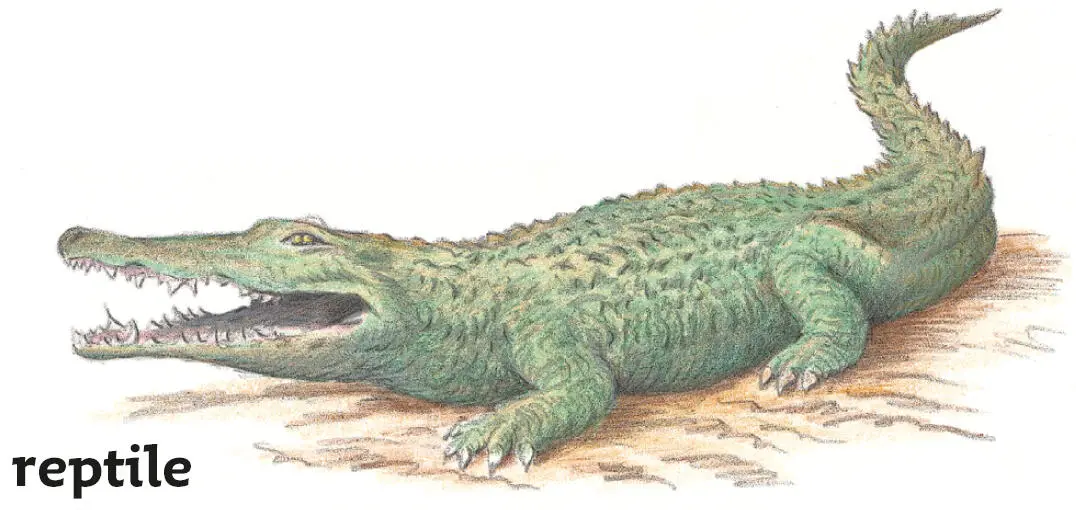
annoy VERB
Читать дальше
